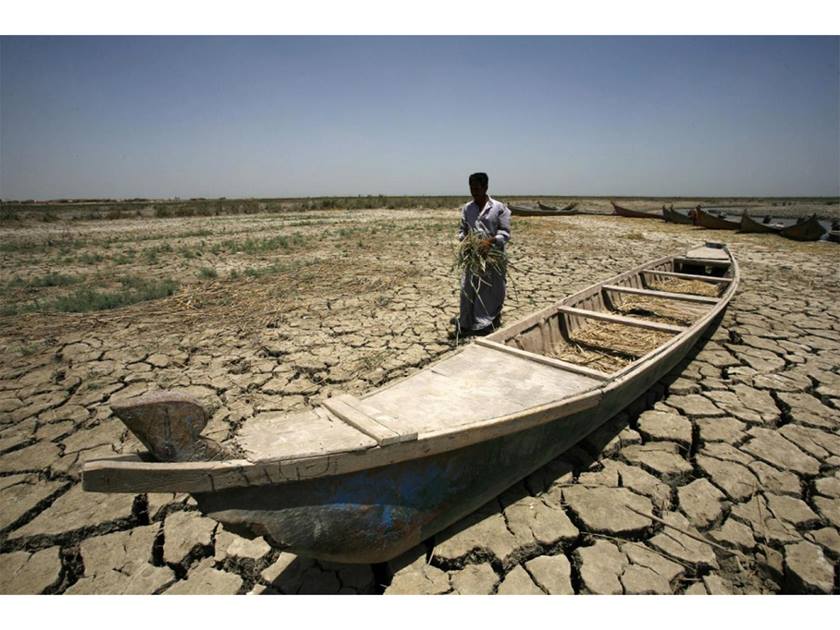Doha, April 17 (QNA) - Every year on April 18, people celebrate World Heritage Day, also known as the International Day for Monuments and Sites (ICOMOS). This day is dedicated to promoting the importance of cultural heritage and raising awareness about the need to preserve historical sites and monuments across the globe.
In its 22th General Conference held in 1983, UNESCO agreed to this mark this date, and since then ICOMOS has been proposing a specific subject to celebrate the annual festival for monuments.
This year subject comes with the theme of 'Heritage Changes,' which UNESCO has made the focus of the world through drawing the global attention to the risk of climate changes, in addition to have a glimpse of their effects on global heritage.
The remarkable change in climate is one of the most important and prominent issues that concern the human of the current era, because it poses a substantial threat to all natural and cultural landmarks of global heritage.
In addition, UNESCO pointed out that there is one in three natural sites and one in six cultural heritage sites are currently threatened by climate change.
UNESCO pointed out that in recent months and years, it has seen cultural and natural heritage sites, including many World Heritage sites, threatened by wildfires, floods, storms and mass-bleaching events.
In this regard, Postdoctoral Research Fellow at the Doha Institute for Graduate Studies Dr. Nour Allah Munawar said in an exclusive statement to Qatar News Agency (QNA) that the international day for heritage not only pertains to the sites incorporated into the list of UNESCO World Heritage Sites - Nature Heritage), but includes all historical monuments, cultural heritage sites, and heritage landscapes of global, regional and local significance, pointing out that the celebration of World Heritage Day comes with the aim of bolstering the knowledge of local communities and individuals of the importance of cultural heritage in their lives. The celebration is also based on spreading and raising the awareness about cultural diversity, archaeological monuments, heritage and cultural sites, and the need to marshal the efforts dedicated to preserving heritage around the world.
He outlined that the event seeks to highlight the significant role played by heritage and culture in enhancing its importance, in addition to the exigent need for initiatives that encourage protection projects in light of the numerous and evolved risks worldwide.
Dr. Munawar pointed out that the threat facing heritage is not merely confined to violence, wars and conflicts, but rather extends to what is known as climate change, where cultural property, heritage sites and monuments are affected by climate change at this current time and in the future as well.
Climate changes are considered the most consequential and latest threats to cultural heritage worldwide, which adversely impact the outstanding universal value of human heritage, including its integrity and authenticity, and its potential for economic and social development both at the local and regional levels.
Climate has influencing factors on the integrity of cultural heritage sites and the existing archeological monuments in open places, such as drought or an upsurge in the surface water level of seas or oceans. Hence, the sustainable preservation of heritage requires a special understanding and a persistent and effective response to these climate effects, given the outstanding universal value of heritage, Munawar added.
He concluded his statement to QNA by saying that heritage is a human value of exceptional global cultural significance. Therefore, efforts to protect heritage from the dangers of wars, conflicts, and climate change are viewed as a local and international humanitarian mission, and simultaneously aim to make the cultural heritage a bridge between the past, present, and future in any society.
In a similar statement to QNA, the Moroccan expert in environment, development and Islamic architecture Dr. Ahmed Al Talhi said that marking the world heritage day is an occasion to inspect the achievements of the past year and the motivation to work for the next year.
He noted that interest in heritage has increased during the recent decades, whether physically in both its cultural and natural parts or otherwise, given that it is a memory of peoples and nations that must be maintained and preserved, in addition to transferring the experiences and expertise left by the ancestors and capitalize on them.
Dr. Al Talhi outlined that the objective of the interest in natural heritage entails the preservation of biodiversity whether in terms of wildlife or vegetation cover as a natural resource that can be further utilized in researches and scientific experiments to cure illnesses and diseases and exploring new nutritional alternatives and raw materials for various manufactures.
He underscored the need to pay attention to lakes, rivers, valleys and their estuaries, seas, oceans, deserts, and all places in which plants and creatures live, and its connection to the economic field, given that they are economic resources for the population and countries, as heritage and its association with the tourism sector is considered a machine for development for many countries. (QNA)


